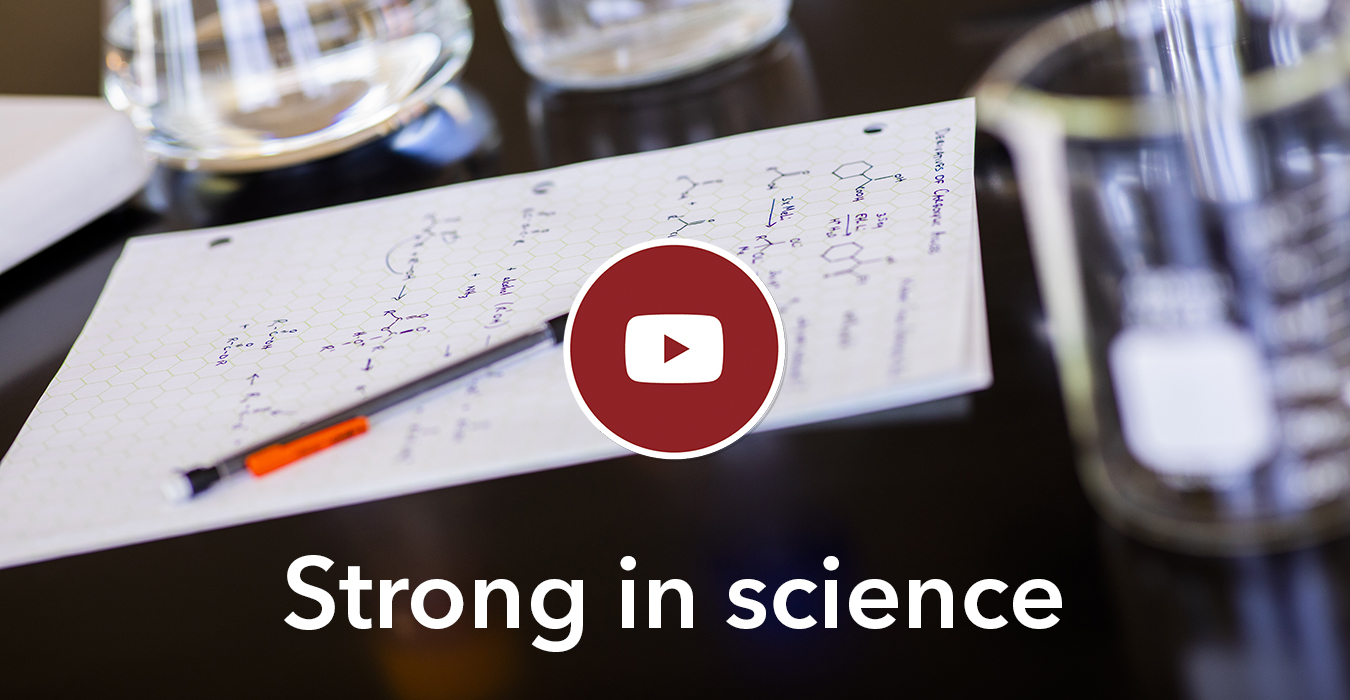Dentistry
Northwestern’s pre-dental program prepares you for entrance into a college of dentistry and an eventual career as a doctor of dentistry. You may be accepted by a college of dentistry after three years of college (minimum of 90-semester hours), but the majority of those accepted have earned a B.A. degree. Specific course requirements vary somewhat between colleges of dentistry in different states. You should carefully target a particular school(s) and design your curriculum accordingly.
Recommended courses
Courses in writing: 6 credits
BIO 115SN - General Biology: Molecular and Cellular Biology
(4 credits) (NWCore option under Science and the Natural World) An introduction to molecular and cellular biology, with an examination of the processes common to living organisms and an introduction to the diversity of life, emphasizing unicellular organisms. This introduction will provide students with a basic understanding of macromolecules, cell structure and function, respiration and photosynthesis, the cell cycle, meiosis, genetics, mechanisms of evolutionary change, and Christian perspectives on evolutionary biology. Prerequisite: Combined Math + Science ACT of at least 44, sophomore standing, or permission of instructor.
Note: Three lectures and 3 hours of laboratory work per week. A fee is associated with this course.
BIO 116 - General Biology: Ecology and Organismal Biology
(4 credits) An introduction to organismal biology and ecology. Structure and function of representatives from the plant and animal kingdom are emphasized. In addition, students will be introduced to basic ecological concepts and Christian perspectives on stewardship.
Note: Three lectures and 3 hours of laboratory work per week. A fee is associated with this course.
CHE 111 - General Chemistry
(4 credits) An introductory course in chemistry that emphasizes physical and inorganic concepts, problems and calculations. Topics include chemical reactions, stoichiometry, properties of gases, thermochemistry, theories of atomic structure, and chemical bonding. The general chemistry sequence (Chemistry 111 and Chemistry 112) is recommended for students with good math / science preparations who intend to proceed to advanced courses in chemistry, the biological sciences or engineering. Prerequisites: high school chemistry and ACT math score of at least 22 (SAT 540 or above) or sophomore status.
Note: Three lectures and one three-hour laboratory period per week. A fee is associated with this course.
CHE 112 - General Chemistry
(4 credits) A continuation of Chemistry 111. Topics covered include kinetics, thermodynamics, chemical equilibria, acid-base chemistry and nuclear chemistry. Prerequisite: CHE111 or consent of the instructor.
Note: Three lectures and one three-hour laboratory period per week. A fee is associated with this course.
CHE 321 - Organic Chemistry
(4 credits) The study of carbon compounds and their functional groups, including nomenclature, synthesis, reactions, structures, mechanisms and spectroscopic analysis.
Prerequisites: CHE112 or permission of instructor.
Note: Three lectures and one three-hour laboratory period per week. A fee is associated with this course.
CHE 322 - Organic Chemistry
(4 credits) A continuation of the study of carbon compounds and their functional groups, including nomenclature, synthesis, reactions, structures, mechanisms and spectroscopic analysis.Prerequisite: CHE321.
PHY 111SN - General Physics I
(4 credits) (NWCore option under Science and the Natural World) This is the first in a two-course algebra-based sequence. Topics include kinematics, Newtonian mechanics, energy, momentum, gravity, atomic physics, thermodynamics, and simple harmonic oscillations. Prerequisite: C- or higher in MAT109QR, ACT math score of 24 or better (SAT 570 or above), or consent
of the department chair.
Note: There is a laboratory component to this course.
PHY 112 - General Physics II
(4 credits) This is the second in a two-course algebra-based sequence. Topics include electricity, magnetism, electromagnetic waves, electromagnetism, and optics. Prerequisite: successful completion of PHY111SN with a grade of C- or better,
or consent of department chair.
Note: There is a laboratory component to this course.
A minimum of one course in Biochemistry:
BIO 326x - Biochemistry:Proteins and Metabolism
(4 credits) A fundamental course surveying biomolecules, catabolism, bioenergetics and biosynthesis. Prerequisites: CHE321 and 322. Cross-Referenced: Cross-referenced in chemistry.
Note: Includes 3 hours of lab per week. A fee is associated with this course.
CHE 326x - Biochemistry: Proteins and Metabolism
(4 credits) A fundamental course surveying biomolecules, catabolism, bioenergetics and biosynthesis. Prerequisites: CHE321 and 322. Cross-Referenced: Cross-referenced in biology.
Note: Three lectures and one three-hour laboratory period per week. A fee is associated with this course.
BIO 327WI - Biochemistry: Molecular Genetics
(4 credits) (Writing intensive) This course focuses on the structure and function of nucleic acids and examines the biochemical techniques involved in gaining knowledge regarding replication, transcription and translation of genetic information, and control of gene expression. Prerequisites: BIO115SN and CHE321 and CHE322, or BIO202WI.
Note: Includes 3 hours of lab per week. A fee is associated with this course.


